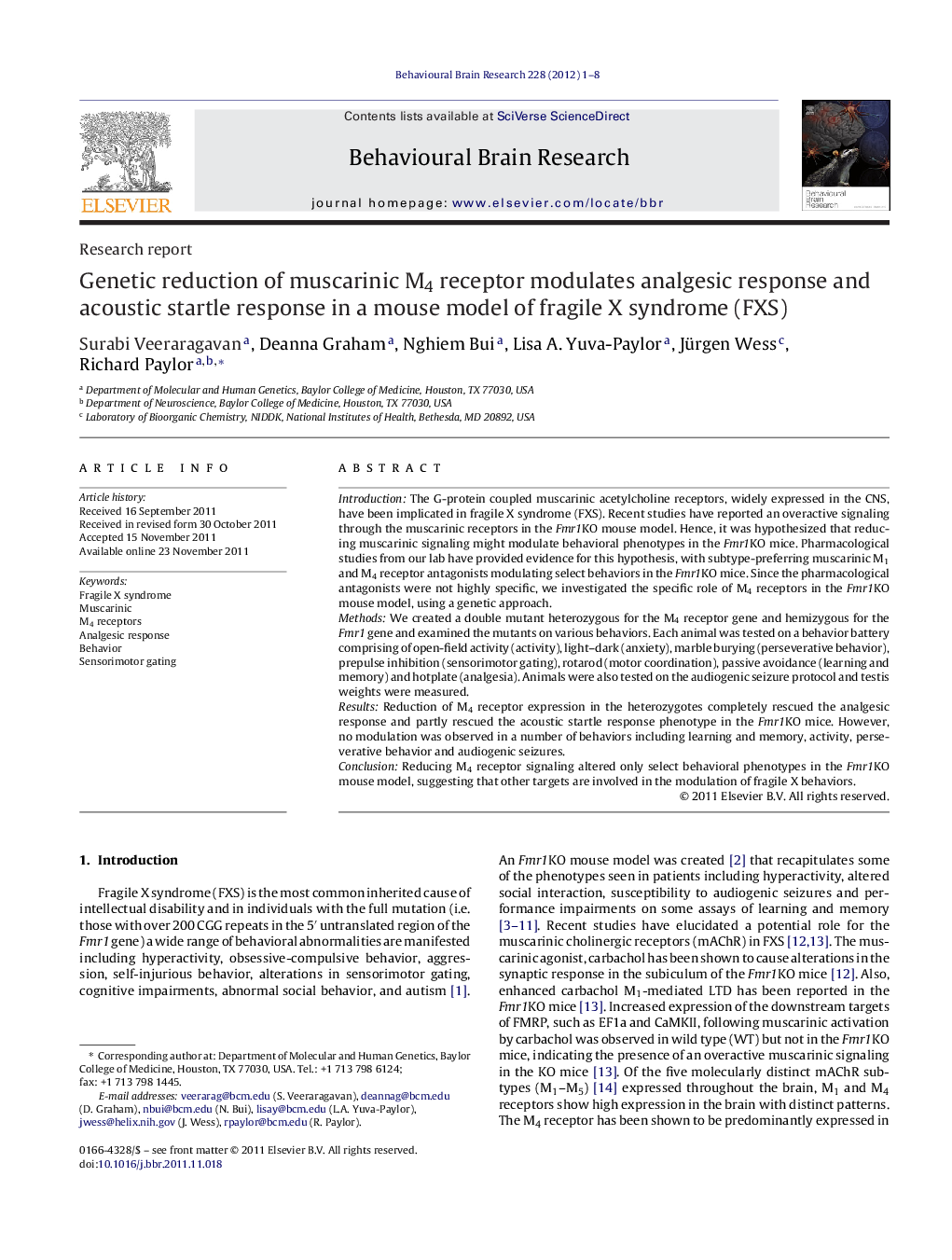| Article ID | Journal | Published Year | Pages | File Type |
|---|---|---|---|---|
| 4313534 | Behavioural Brain Research | 2012 | 8 Pages |
IntroductionThe G-protein coupled muscarinic acetylcholine receptors, widely expressed in the CNS, have been implicated in fragile X syndrome (FXS). Recent studies have reported an overactive signaling through the muscarinic receptors in the Fmr1KO mouse model. Hence, it was hypothesized that reducing muscarinic signaling might modulate behavioral phenotypes in the Fmr1KO mice. Pharmacological studies from our lab have provided evidence for this hypothesis, with subtype-preferring muscarinic M1 and M4 receptor antagonists modulating select behaviors in the Fmr1KO mice. Since the pharmacological antagonists were not highly specific, we investigated the specific role of M4 receptors in the Fmr1KO mouse model, using a genetic approach.MethodsWe created a double mutant heterozygous for the M4 receptor gene and hemizygous for the Fmr1 gene and examined the mutants on various behaviors. Each animal was tested on a behavior battery comprising of open-field activity (activity), light–dark (anxiety), marble burying (perseverative behavior), prepulse inhibition (sensorimotor gating), rotarod (motor coordination), passive avoidance (learning and memory) and hotplate (analgesia). Animals were also tested on the audiogenic seizure protocol and testis weights were measured.ResultsReduction of M4 receptor expression in the heterozygotes completely rescued the analgesic response and partly rescued the acoustic startle response phenotype in the Fmr1KO mice. However, no modulation was observed in a number of behaviors including learning and memory, activity, perseverative behavior and audiogenic seizures.ConclusionReducing M4 receptor signaling altered only select behavioral phenotypes in the Fmr1KO mouse model, suggesting that other targets are involved in the modulation of fragile X behaviors.
► M4 receptor modulates select fragile X behaviors. ► Genetic reduction of M4 rescued the analgesic response. ► Genetic reduction of M4 partly rescued the acoustic startle response. ► M4 receptors are a potential therapeutic target for fragile X syndrome.
